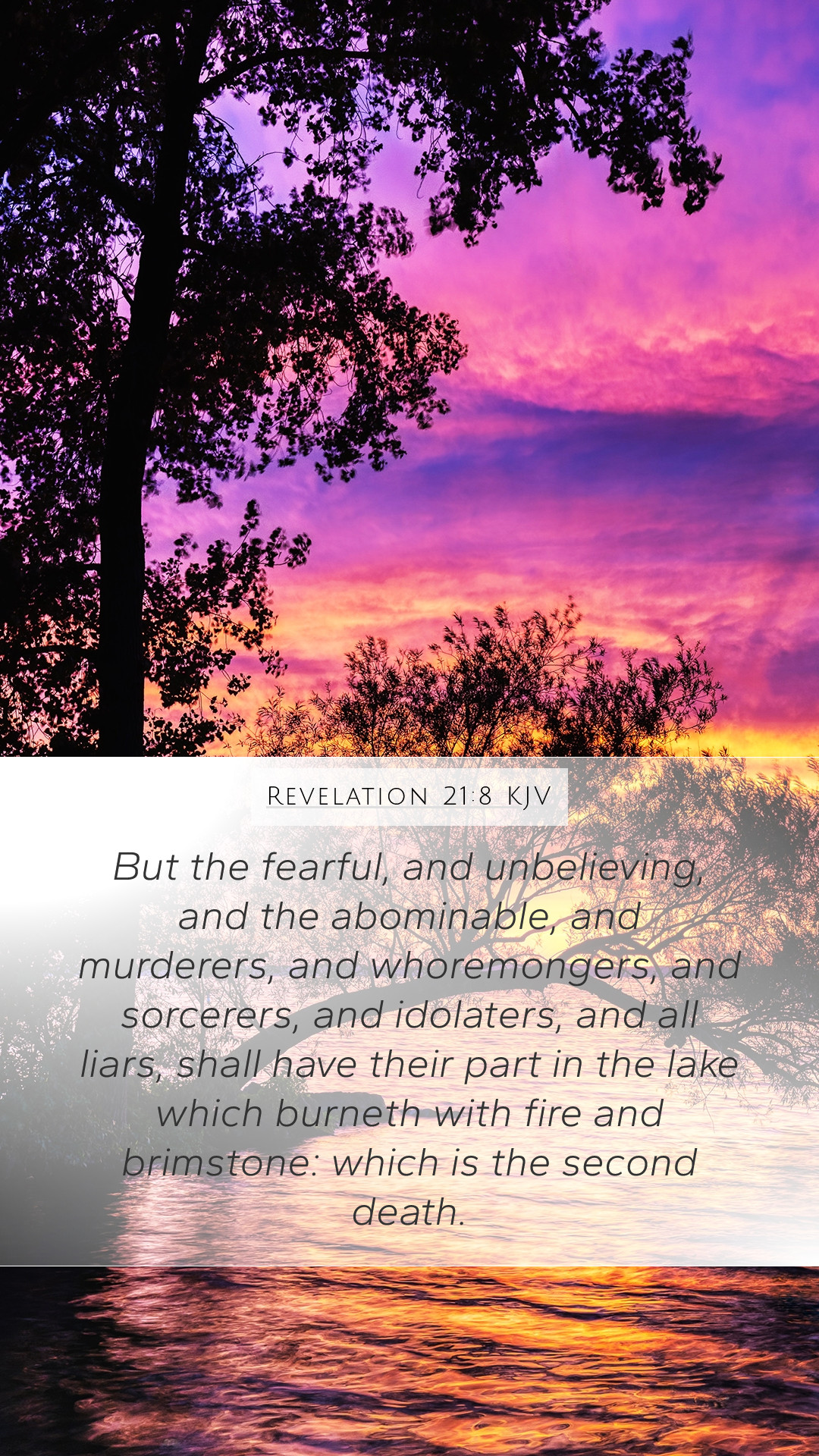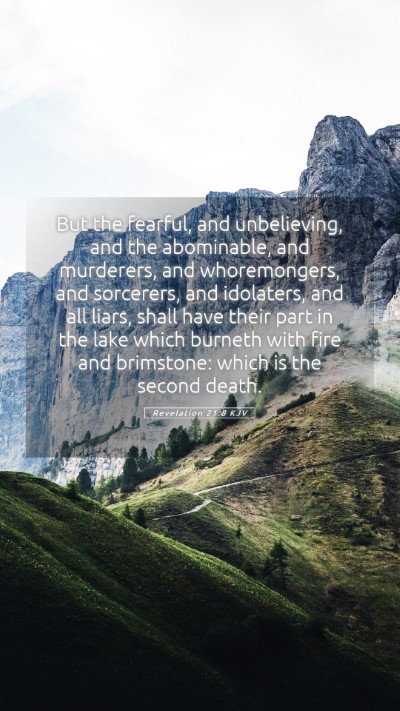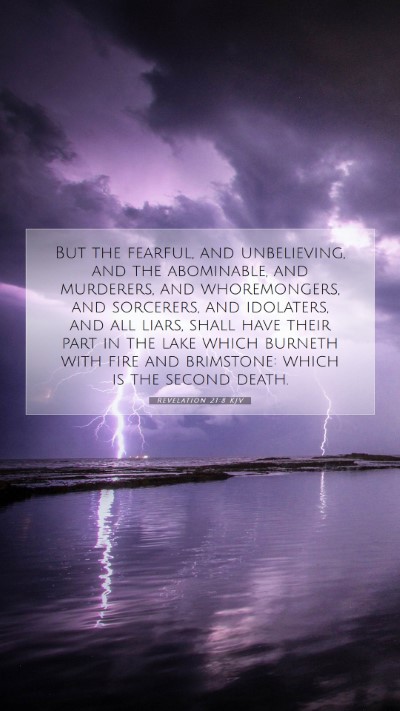Understanding Revelation 21:8
Revelation 21:8 states: “But the fearful, and unbelieving, and the abominable, and murderers, and whoremongers, and sorcerers, and idolaters, and all liars, shall have their part in the lake which burneth with fire and brimstone: which is the second death.” This verse serves as a warning about the consequences of a life lived in opposition to God's commandments.
Key Themes and Insights
- The Nature of Sin: This passage outlines various categories of sin and identifies those who oppose God's moral law.
- Judgment: It emphasizes a final judgment where individuals are held accountable for their choices and actions.
- Hope and Warning: While it conveys a warning, it also serves as a call to repentance, indicating that hope exists for those who turn from sin.
Bible Verse Meanings and Interpretations
According to Matthew Henry's Commentary, this verse underscores the seriousness of sin and the ultimate consequences of failing to repent. Henry emphasizes the comprehensive nature of the sins listed, showing that all forms of rebellion against God are judged equally in the sight of the Lord.
Albert Barnes adds that the “lake which burns with fire and brimstone” is an analogy for eternal separation from God, a theme often found in apocalyptic literature. He indicates that this imagery serves to instill a sense of urgency about one's spiritual state.
Adam Clarke provides additional context, suggesting that the fears mentioned represent a lack of faith and trust in God. Clarke notes that the absence of belief can lead one to a life that ultimately results in spiritual death.
Understanding Scripture in Context
To grasp the full significance of Revelation 21:8, it is essential to explore its historical and theological context:
- Historical Context: The Book of Revelation was written during a time of persecution for early Christians. The stark warnings present in this scripture encourage believers to remain steadfast in their faith.
- Literary Structure: This verse is part of a larger narrative that outlines the ultimate restoration of creation and the new heaven and earth, making a firm distinction between believers and non-believers.
- Theological Implications: It reflects key doctrines concerning sin, judgment, and eternal life, crucial for a proper understanding of biblical soteriology (the study of salvation).
Application of Revelation 21:8
This verse poses several questions for personal reflection and application in daily life:
- Self-Examination: Am I living in a way that aligns with my faith in Christ? Am I avoiding the pitfalls mentioned in this verse?
- Encouragement to Others: How can I share the hope of the gospel with others who may be living in fear or unbelief?
- Promoting Faithfulness: What steps can I take to encourage faithfulness to God's commandments in my community?
Related Cross References
- Matthew 25:41-46: The separation of the sheep and the goats, highlighting eternal judgment.
- 1 Corinthians 6:9-10: A list of behaviors that exclude individuals from the kingdom of God.
- Revelation 20:10: The fate of the devil, emphasizing the eternal consequence of evil.
Conclusion
In summary, Revelation 21:8 serves as a profound warning about the consequences of a life turned away from God. As believers engage in Bible study and seek to understand scripture more deeply, it is crucial to incorporate discussions about judgment, grace, and the transformative power of repentance into their study sessions. Using tools such as commentaries, group discussions, and reflective questions can enhance Bible study insights and lead to a deeper understanding of this verse and its implications on our spiritual lives.


